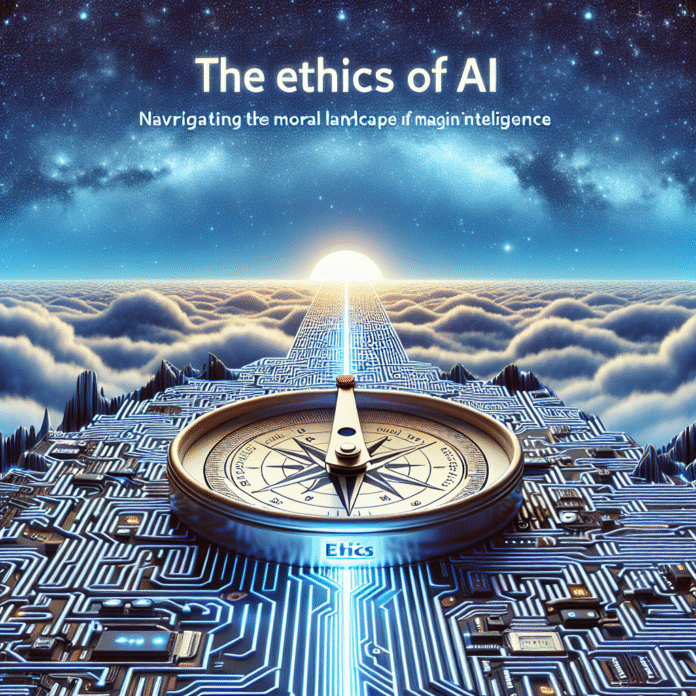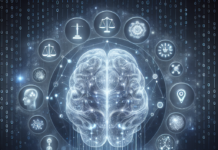<h1>The Ethics of AI: Navigating the Moral Landscape of Machine Intelligence</h1>
<p>As artificial intelligence (AI) continues to evolve and permeate various sectors of society, the conversation around its ethical implications becomes increasingly urgent. The integration of machine intelligence into our daily lives raises critical questions about morality, responsibility, and human agency.</p>
<h2>The Rise of AI</h2>
<p>Machine learning algorithms and AI systems are now utilized in diverse areas, including healthcare, finance, autonomous vehicles, and even creative arts. With these advances come both opportunities and challenges, as the capabilities of AI can enhance productivity while also posing ethical dilemmas.</p>
<h2>Key Ethical Issues</h2>
<ul>
<li><strong>Bias and Discrimination:</strong> AI can perpetuate existing biases present in training data, leading to decisions that can discriminate against certain groups based on race, gender, or socioeconomic status.</li>
<li><strong>Privacy Concerns:</strong> The collection and analysis of vast amounts of personal data by AI systems can infringe on individual privacy rights, often without explicit consent.</li>
<li><strong>Accountability:</strong> When AI systems make mistakes, determining who is responsible—the developers, users, or the AI itself—can be convoluted and murky.</li>
<li><strong>Job Displacement:</strong> Automation through AI threatens to displace jobs, raising concerns about economic inequality and the future of work.</li>
</ul>
<h2>Frameworks for Ethical AI</h2>
<p>To navigate these complex moral landscapes, several ethical frameworks have been proposed:</p>
<ul>
<li><strong>Human-Centric approaches:</strong> Focus on ensuring that AI serves human interests and preserves human dignity.</li>
<li><strong>Transparency:</strong> Advocates for clear disclosures about how AI systems operate and make decisions.</li>
<li><strong>Fairness:</strong> Emphasizes the importance of developing AI systems that treat all individuals equitably and justly.</li>
<li><strong>Accountability:</strong> Calls for mechanisms that hold developers and organizations accountable for the impacts of AI systems.</li>
</ul>
<h2>The Path Forward</h2>
<p>As we stand at this intersection of technology and ethics, a multidisciplinary approach that includes technologists, ethicists, policymakers, and the general public is essential. Open dialogue about the implications of AI can help shape regulations and standards to ensure that the development and deployment of AI technologies reflect our collective values.</p>
<h2>Conclusion</h2>
<p>The ethics of AI is not a mere academic concern; it is a pressing societal issue that affects millions around the globe. By approaching AI development with a focus on ethical considerations, we can foster systems that enhance human well-being while minimizing harm. The journey toward ethical AI is ongoing, and it is up to all stakeholders to navigate this moral landscape with integrity and foresight.</p>
<footer>
© 2023 The Ethics of AI Blog. All rights reserved.
</footer>
Stay tuned for more updates- As artificial intelligence continues to reshape industries, societies, and everyday life, questions of ethics and responsibility have become more urgent than ever. From bias and transparency to accountability and the future of human autonomy, the moral challenges of machine intelligence demand careful navigation.







